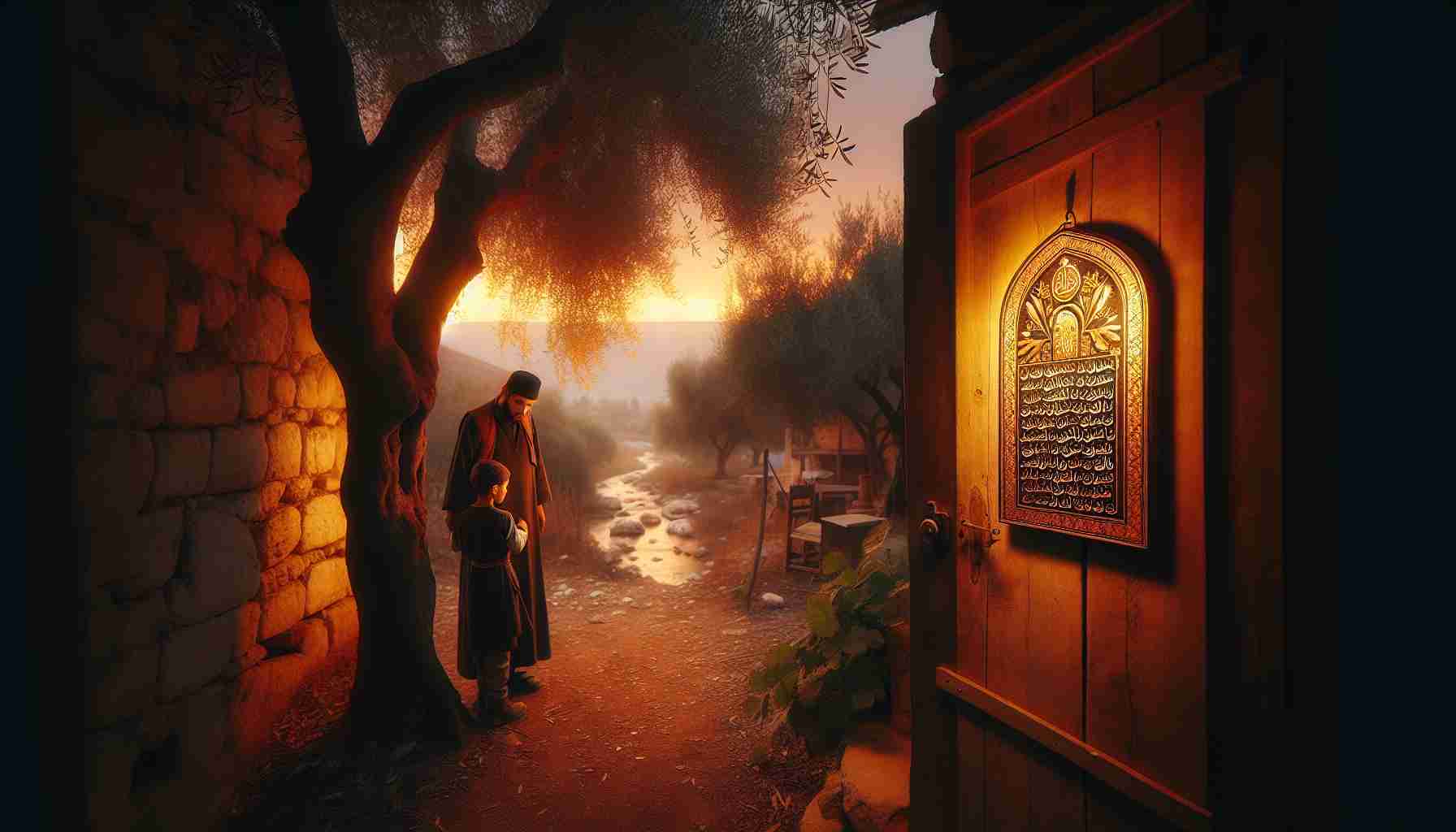

It was the first thing I saw when I came home—before the scent of soup or my mother’s greeting or the call of my little brothers running down the hallway.
The mezuzah.
My name is Eliyah, and I was just a boy when I started noticing the difference between houses that had one and those that didn’t. We were still settling into life in the Land, just as Moses had instructed before we crossed the Jordan River. Devarim—Deuteronomy 6:9—says, “Write them on the doorposts of your house and on your gates.” That verse was read to us aloud on many Shabbats, as if its letters hadn’t yet sealed themselves on our hearts. But for my father, those words had already become a command.
I still remember the day he nailed the mezuzah to our doorway. It was a small parchment scroll—carefully handwritten with words from the Shema prayer—and enclosed in a wooden case he had carved himself. He asked me and my two older brothers to stand close as he lifted the case and said the blessing.
I asked him why it mattered so much to put it on the door.
He looked at me—with dust still on his hands from working the field—and said, “Because our house must belong to God, Eliyah, no matter what comes through this door.”
I didn’t truly understand what he meant that day. Not until years later, when the Canaanite raids swept through.
It had been an afternoon like any other. I had gone to the well and lingered there too long. On my way back, I saw the smoke first. Black pillars rising from the far side of the village.
I ran. Faster than ever in my life. My heart beat louder than the war cries.
When I arrived, the outer homes had already been ransacked. Doors broken. Walls scorched.
But when I reached ours, the walls still stood. The door was marred but unbroken. A sword mark streaked across the wood—and just beneath it—the mezuzah hung crooked, but still there.
I found my family in the cellar. Safe. Shaken, but alive.
That night, my father touched the bloody scrape on the mezuzah case with shaking fingers.
He whispered, “This house is sealed by His name.”
I finally understood. The mezuzah was not magic to protect us. It was a reminder—one we passed daily—that our home and our lives belong to something greater than fear or danger.
Now, I am grown. I have children of my own, and each time we move, I carve a wooden case for a mezuzah with my sons, just as my father did.
And as I nail it to the doorpost, I remember his words.
Because our homes are not just where we eat or sleep. They are holy. Marked. Watched over.
And every time I pass through the door, I press my fingers to that little scroll and remember Who guards us.
It was the first thing I saw when I came home—before the scent of soup or my mother’s greeting or the call of my little brothers running down the hallway.
The mezuzah.
My name is Eliyah, and I was just a boy when I started noticing the difference between houses that had one and those that didn’t. We were still settling into life in the Land, just as Moses had instructed before we crossed the Jordan River. Devarim—Deuteronomy 6:9—says, “Write them on the doorposts of your house and on your gates.” That verse was read to us aloud on many Shabbats, as if its letters hadn’t yet sealed themselves on our hearts. But for my father, those words had already become a command.
I still remember the day he nailed the mezuzah to our doorway. It was a small parchment scroll—carefully handwritten with words from the Shema prayer—and enclosed in a wooden case he had carved himself. He asked me and my two older brothers to stand close as he lifted the case and said the blessing.
I asked him why it mattered so much to put it on the door.
He looked at me—with dust still on his hands from working the field—and said, “Because our house must belong to God, Eliyah, no matter what comes through this door.”
I didn’t truly understand what he meant that day. Not until years later, when the Canaanite raids swept through.
It had been an afternoon like any other. I had gone to the well and lingered there too long. On my way back, I saw the smoke first. Black pillars rising from the far side of the village.
I ran. Faster than ever in my life. My heart beat louder than the war cries.
When I arrived, the outer homes had already been ransacked. Doors broken. Walls scorched.
But when I reached ours, the walls still stood. The door was marred but unbroken. A sword mark streaked across the wood—and just beneath it—the mezuzah hung crooked, but still there.
I found my family in the cellar. Safe. Shaken, but alive.
That night, my father touched the bloody scrape on the mezuzah case with shaking fingers.
He whispered, “This house is sealed by His name.”
I finally understood. The mezuzah was not magic to protect us. It was a reminder—one we passed daily—that our home and our lives belong to something greater than fear or danger.
Now, I am grown. I have children of my own, and each time we move, I carve a wooden case for a mezuzah with my sons, just as my father did.
And as I nail it to the doorpost, I remember his words.
Because our homes are not just where we eat or sleep. They are holy. Marked. Watched over.
And every time I pass through the door, I press my fingers to that little scroll and remember Who guards us.